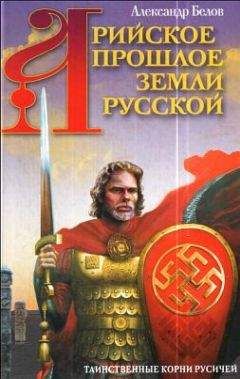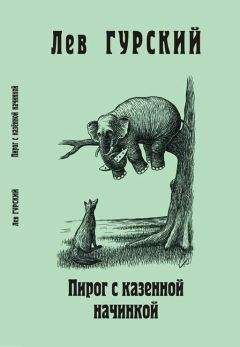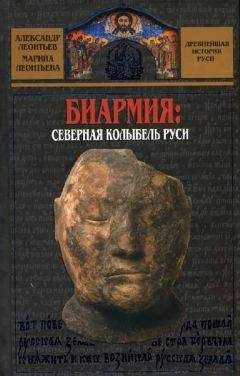David Wallace - Infinite jest
from the Organization of North American Nations---and by the fact that all too many
prominent figures in the recent sociohistory of the Separatist movement---for e.g., Schnede, Charest, Remillard, both Sr. and Jr. Bouchards---have, in the last 24 months---particularly, in the violent and bloody autumn of the Year of the Trial-Size Dove Bar---”heard the squeak.” ‘
Struck’s little TP’s internal Lex files confirm vishnu, at least. Plus there’s a kind of almost savage edge to the article’s incoherence that Struck’s getting almost to like, a little: he keeps imagining the little hyphen of wrinkle Poutrincourt gets between her eyebrows when she doesn’t follow something and can’t quite tell if it’s your English’s fault or her English’s fault. ‘Prior to Y.P.W.c.’s Freedom of Speculation Act, credible sociohistorical data on the origins and evolution of Les Assassins des Fauteuils Rollents from obscure, adolescent, nihilistic Root Cult to one of the most feared cells in the annals of Canadian extremism was regrettably patchy and dependent on the hearsay of sources whose scholarly veracity was of an integrity somewhat less than unimpeachable.’ Struck here pictures Thierry Poutrincourt, who tends to get that little annoyed-confusion wrinkle sometimes even with the lucidest of term papers, lowering her tall head and charging into a wall. One sinus feels noticeably bigger than the other sinus, and there’s something not quite right with his neck from sitting hunched all this time, and he’d kill relatives for a quick DuBois.
‘Les Assassins des Fauteuils Rollents of Quebec are essentially cultists, locating both their political raison d’etre and their philosophical dasein within the North American sociohistorical interval of intensive special interest diffraction that preceded---nay, one might daresay stood in integral causal relation with respect to---the nearly simultaneous inaugurations of O.N.A.N.ite governance, continental Interdependence, and the commercial subsidization of a lunar O.N.A.N. calendar. Like most Canadian cult extensions, however, the Wheelchair Assassins and their cultic derivations have proven substantially more fanatical, less benign, less reasonable, and substantially more malignant---in sum, more difficult for responsible authorities to anticipate, control, 4 CBC/PATHÉ 1200h.-0000h. Summary Cartridge * 911-24-04, 4 May Y.P.Wc., © Y.P. We., PATHÉ Nouvelle Toujours, Ltd. interdict, or reason with than even the most passionate U.S. kabals. This scholarly essay concurs in many essential respects with the thesis that Canadian and other non American Root Cults, in contrast to all but what Phelps and Phelps argue are isolated pockets of antihistorical American stelliformism, persist so queerly in directing their reverent fealty toward principles, quote, “often not only isomorphic with but activally opposed to the cultists’ own individual pleasure, comfort, cut bono, or entertainment as to be all but outside the ken of both the sophisticated predictive models of psychosocial science and the rudimentary comprehension of human reason.”5’
This all takes serious labor for Struck to decoct the gist out of and then recast in rather less uptown and more basic studential prose. Twice in the hall outside his and Shaw’s and Pemberton’s room, Rader and Wagenknecht and some other 16’s-sounding males go down the hall, all of them together going ‘Er, ah, ee, oo, ah, er, ah, ee …,’ and so on. ‘It is an accepted fact that Les Assassins’ Root Cult, in a fashion typical of those whose objects are divorced from the rational advancement of individual interest, takes, for its rites and personality, rituals intimately bound up with “Les jeux pour-memes” formal competitive games whose end is less any sort of “prize” than it is a manner of basic identity: i.e., that is, “game” as metaphysical environment and psychohistorical locus and geatalt.’ Struck’s own historical dad, during Jim’s own childhood in Rancho Mirage, was an inveterate red-wine-with-heavy-tranqs-on-the-side drinker, who used to make late-night phone calls to people he didn’t know very well and make statements he later had to retract at great length, until finally one autumn night the Dad had staggered out and attempted a one-and-a-half tuck into the Struck family’s backyard pool that he hadn’t recalled had been drained, resulting in a neck brace for life that ended his career as a low-80s golfer, resulting in incredible bitterness and family trauma, before little J.A.L.S. Jr. was shipped off to the Rolling Hills Academy.
‘It is, for example, largely conceded that Les Assassins’ confinement to their epithetic wheelchairs can be traced to rural southwestern pre-Experialist Quebec’s infamous “Le]eu du Prochain Train,” and that the A.F.R.’s Root Cult itself was comprised largely or perhaps even entirely of veteran devotees and practitioners of this savage, nihilistic, and mettle testing jeu pour-meme.
‘ “La Culte du Prochain Train,” often translated as “The Cult of the Next Train,” is known to have originated at least a decade prior to Reconfiguration among the male offspring of asbestos, nickel and zinc miners in the desolate Papineau region of what was then extreme southwest Quebec. The chilling game’s competition and its upspringing cult soon spread throughout the network of non-ionized and pre-Interdependent railroad lines which carried raw minerals south to Ottawa and the United States’ Great Lake Ports.’ Over Struck’s little desk hangs a model airplane made entirely from different parts of beer cans. While Inc was keen on the whole lurid mirror-across-highway terrorism thing of early O.N.A.N., and Schacht’s paper’s focus was the violent French-Catholic protests against municipal fluoridation under Mulroney, Struck had picked the A.F.R.-and-Russian-Roulettish-train-jumping-cult-thing connection, and was sticking to it with the same tenacity that kept him on the 18’s A-squad despite a serve that deLint described as resembling a debutante’s curtsy. The plane’s got flattened cans for wings, smunched-flat cans for wheels, part of a tallboy for fuselage and snout.
‘As with many games, Le Jeu du Prochain Train was itself substantially simpler than 5 in Phelps and Phelps, The Cults of the Unwavering I: A Field Guide to Cults of Currency Speculation, Melanin, Fitness, Bioflavinoids, Spectation, Assassination, Stasis, Property, Agoraphobia, Repute, Celebrity, Acraphobia, Performance, Amway, Fame, Infamy, Deformity, Scopophobia, Syntax, Consumer Technology, Scopophilia, Presleyism, Hunterism, Inner Children, Eros, Xenophobia, Surgical Enhancement, Motivational Rhetoric, Chronic Pain, Solipsism, Survivalism, Preterition, Anti-Abortionism, Kevorkianism, Allergy, Albinism, Sport, Chiliasm, and Telentertainment in pre-O.N.A.N. North America, © Y.P.W. the organization of the competition.’ A cool smile from Struck. ‘It was played after sunset at specified sites, specifically les passages a niveau de vote ferrée that marked every rural Quebecker road’s intersection with a railroad track. In the Year of the Whopper, there were over two thousand (2,000) such intersections in the Papineau region alone, though not all saw heavy enough flow to accommodate the complexities of true competition.
‘Six boys, miners’ sons, ages ten to roughly sixteen, Quebecois French speaking boys, line up on six railroad ties’ juts just outside the track. Two hundred sixteen (216) boys---never either more nor less---are involved in a night’s opening rounds, organized into sixes, each group of six taking its turn with a different train, standing on consecutive juts just outside one track, waiting, doubtless tense, awaiting the procession of a fearsome bride, indeed. The night’s heavily travelled crossing’s schedule of trains is known to Lejeu du Prochain Train’s episcopate of les directeurs dejeu---older, post-adolescent boys, veterans of previous les jeux, many of them legless and in wheelchairs or---for the sons of asbestos miners, many orphaned and desperately poor---on crude rolling boards.
No timepieces are permitted the players, who are under the absolute discretion of the game’s directeurs, whose decisions are final and often brutally enforced. They all are silent, listening for the sound of the engine’s whistle, a sound which is sad and cruel at the same time, as the sound approaches and begins to subtly undergo Doppler Effects. They tense palely muscled legs beneath hand me down corduroys as the next train’s one white eye rounds the track’s curve and bears down on the game’s waiting boys.’
Struck keeps bogging down in these parts where it seems like the guy just totally abandons a scholarly tone, and even probably starts making up or hallucinating details which there’s no way Jim Struck could represent himself as having been there to see, and he’s blue-delete-looping all over the place, plus grinding his eye and picking at his forehead, his two more or less constant responses to creative stress.
‘Le Jeu du Prochain Train itself is simplicity in motion. The object: Be the last of your round’s six to jump from one side of the tracks to the other---that is, across the tracks---before the train passes. Your only real opponents are your six’s other five.
Never is the train itself regarded as an opponent. The speeding, screaming train is regarded rather as le jeu’$ boundary, arena, and reason. Its size, its speed down the extremely gradual north-to-south grade of what was then southwestern Quebec, and the precise mechanical specifications of each scheduled train---these are known to the directeurs, they comprise the constants in a game the variables of which are the respective wills of the six ranged along the track, and their estimates of one another’s will to risk all to win.’
Struck transposes clearly nonadolescent uptown material like this into: ‘The variable of the game isn’t so much a matter of the train, but the player’s courage and will.’
‘The last few instants, vanishingly small, when the player may hurl himself athwart the expanse of track, across timber ties, creosote stench, gravel and scarred iron, amid the ear splitting scream of the whistle almost overhead, able to feel the huge push of terrible air from the transport’s cow catcher or express train’s rounded nose, to go sprawling in the gravel past the tracks’ other side and roll to see wheels and flanges, couplings and driving rods, the furious back and forth of transverse axles, feeling the whistle’s steam condense to drizzle all around---these few seconds are known, familiar as their own pulse, to the boys who assemble and play.’ Struck’s now progressed to grinding the whole heel of his hand into his eyesocket, producing a kind of ectoplasmic pinwheel of red in there. Did like even pre-bullet railroad engines have flanges and cowcatchers and whistles that steamed?
In a disastrous lapse, Struck copies hurl himself athwart, a decidedly un-Struckish-sounding verb phrase, verbatim into his text.
‘… that the true variable which renders le Jeu du Prochain Train a contest and not merely a game involves the nerve and heart and willingness to risk all of any or all of the five waiting beside you at the track. How long can they wait? When will they choose? Their lives and limb worth how much Queen-headed coin this night? More radical by far than the American youth automobile game of “Chicken” to which its principle is frequently compared (five, not one, different wills to comparatively gauge, in addition to your own will’s resolve, and no motion or action to distract you from the tension of waiting motionlessly to move, waiting as one by one the other five quail and save themselves, leap to beat the train …,’ and then the sentence just ends, without even a close to the parenthesis, though Struck, with a canny sense for this sort of thing, knows the analogy to Chicken’11 ring just the right bell, term-paper-wise.
‘Le Jeu’s historic best, reportedly, however, ignore their five competitors completely, concentrating their entire attention on determining the last viable instant in which to leap, regarding the last, final, and only true opponent in the game to be their own will, mettle, and intuition about the last viable instant in which to leap. These nerveless few, le Jeu’s finest---many of whom will go on to directeur future jeux (if not, often, to membership in Les Assassins or its stelliform offshoots)---these nerveless and self-contained virtuosi never see their opponents’ flinches or tics or the darkenings at corduroys’ crotches, none of the normal signs of will faltering which lesser players scan for---for the game’s finest players frequently close their eyes entirely as they wait, trusting the railroad ties’ vibration and the whistle’s pitch, as well as intuition, and fate, and whatever numinous influences lie just beyond fate.’ Struck at certain points imagines himself gathering this Wild Conceits guy’s lapels together with one hand and savagely and repeatedly slapping him with the other — forehand, backhand, forehand.
‘The cult’s game’s principle is simple. The last of the six to jump before the train and land intact wins the round. The fifth through the second to leap have lost, but acquitted themselves.
‘The first in a round to quail and jump walks home from there, alone under the moon, disgraced and ashamed.
‘But even the first to quail and jump has jumped. Far beyond prohibited, not to jump at all is regarded as impossible. To “perdre son coeur” and not jump at all is outside le Jeu’s limit. The possibility simply does not exist. It is unthinkable. Only once, in le Jeu du Prochain Train’s extensive oral history, has a miner’s son not jumped, lost his heart and frozen, remaining on his jut as the round’s train passed. This player later drowned. “Perdre son coeur” when it is mentioned at all, is known also as “Faire un Bernard Wayne,” in dubious honor of this lone unjumping asbestos miner’s son, about whom little beyond his subsequent drowning in the Baskatong Reservoir is known, his name denoting a figure of ridicule and disgust among speakers of the Papineau Region vulgate.’ Disastrously, Struck blithely transposes this stuff too, with not even a miniature appliance-size bulb flickering anywhere over his head.
‘The game’s object is to jump last and land still fully limbed upon the opposite embankment.
‘Expresses are 30 k.p.h. faster than conventional transports, but a transport’s cow catcher mangles. A boy struck head on by a moving train is shot as from a cannon, knocked out of his shoes, describes a towering, flailing arc, and is transported home in a burlap sack. A player caught beneath a wheel and run over is frequently spread out along a hundred red meters or more of reddened track, and is transported home in a number of ceremonial asbestos and nickel mining shovels provided by the Jeu’s older and frequently dismembered directeurs.




